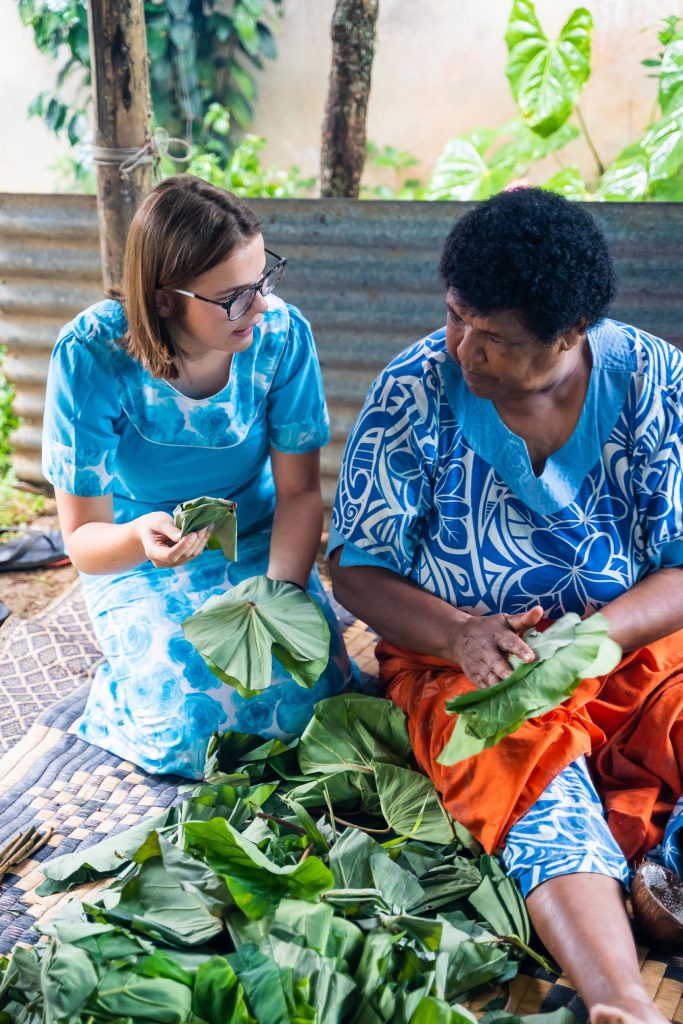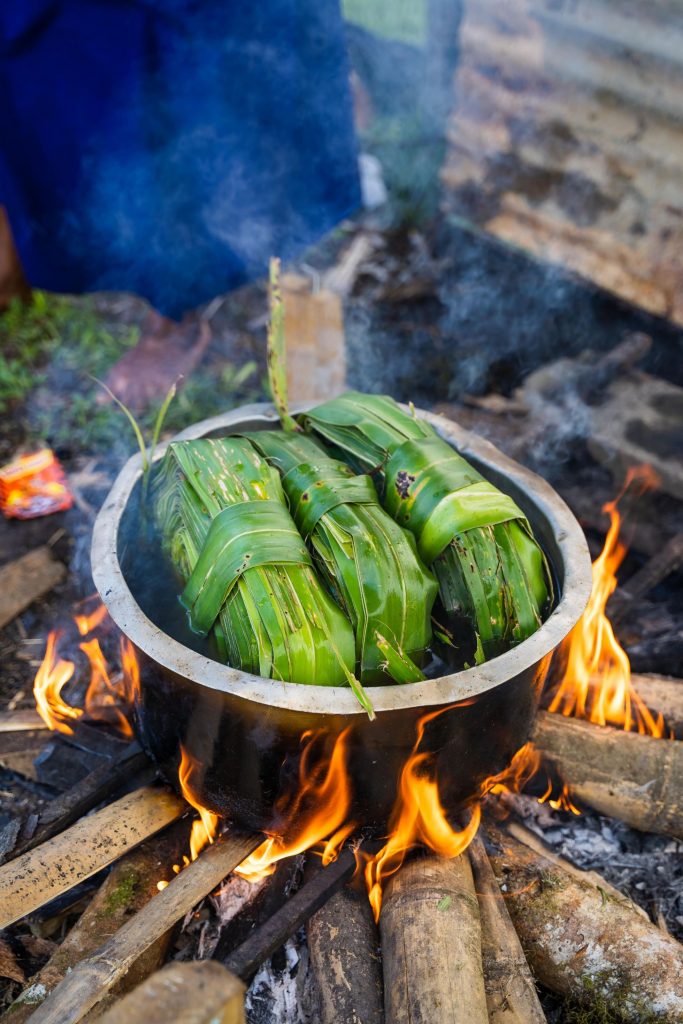To Give You Some Background To Diet In Fiji…
Typical Fijian food
Food in a Fijian village is very carbohydrate heavy, and the central bulk of a Fijian diet is made up of root crops including Dalo and Cassava. Rice forms a basis for many meals also. Fijian’s eat lots of fish and most meals will consist of fresh fish, local green vegetables and rice. A typical Fijian meal could be cooked in coconut, chilli or lime. There are a lot of influences from Indian and Chinese cuisines within Fiji also, so expect meals such as curry and chop suey. Common breakfast in Fiji may consist of bread, roti, Fijian pancakes and fruits such as banana, coconut and papaya.
Fijians commonly also add food such as tinned tuna or corned beef and noodles. Many participants love the Fijian diet, the generous portions provided and the communal way of eating each meal together as a special time.. However the diet can post issues for some.
Meals may be repetitive, heavy and basic
There is limited dairy produce, so few eggs, milk or cheese consumed. There is often limited fruit in the villages too, which students find surprising, but this is very much dictated on seasons, so it is a good idea to supplement your diet with multivitamin tablets. Please be prepared that there is not a great variety of food, which means meals can be repetitive, heavy and basic. However, Fijians will often make several dishes, and eat together with many different family members all sitting on the floor enjoying communal meals. Consequently, there are often different foods at each meal to try and this helps to find food you enjoy and eat more of. More commonly today, Fijians in rural communities will fry their food. However, this is a good example of how we can support by suggesting that food is boiled instead.
Cultural considerations…
It’s always important to keep in mind the cultural background to food. The villagers work incredibly hard to provide food, often waking at 4pm daily to farm or fish or prepare for the whole community or travelling miles by bus or truck to markets. With no shops nearby and families largely reliant on subsistence, the local people go to huge efforts to provide food for their families and hosts. Because of this cultural difference, we are naturally so conscious and considerate to the community, whilst balancing the medical needs and dietary requirements we may have as guests. We encourage everyone to try all the different foods available and be mindful and humble of the cultural difference. We also come with a mindset to treat food simply as fuel to ensure we are healthy and nourished to achieve the project aims.
We do understand food can pose issues with specific dietary and medical needs, which is why it is important to chat ahead of going to Fiji. If you feel you may take time to adjust to the basic diet, you may wish to bring energy bars (as example) from home to supplement your diet in the first couple of days and we strongly advise you to chat through any challenges you are facing with your Leaders on project.



Vegan & vegetarian diets
- We have had hundreds of students join our project who follow a vegan or vegetarian diet.
- As long as we know in advance, we can advise your family ahead of your arrival and this will not cause any offence.
- However, please be prepared, the meals will often be very basic and repetitive and carb heavy, consisting of lots of root crops and local vegetables.
Allergies & medical requirements…
- Please advise Think Pacific in advance if you have any allergies or intolerance to food so we can best prepare.
- We find when students are open with our staff and also our leaders on the ground, then we can work together to find foods that do not irritate and you can have a basic but healthy diet in Fiji
- At the resorts for briefings and debrief, or in the capital, Suva, more choice and western foods are available.
Advise TP of any dietary needs before departure!
- Please advise Think Pacific fully about any dietary restrictions or requirements before arriving into Fiji.
- You have the opportunity to list this on your pre-departure form.
- It is especially important that we know of any allergies, intolerances or conditions you may suffer from that can impact your diet.
